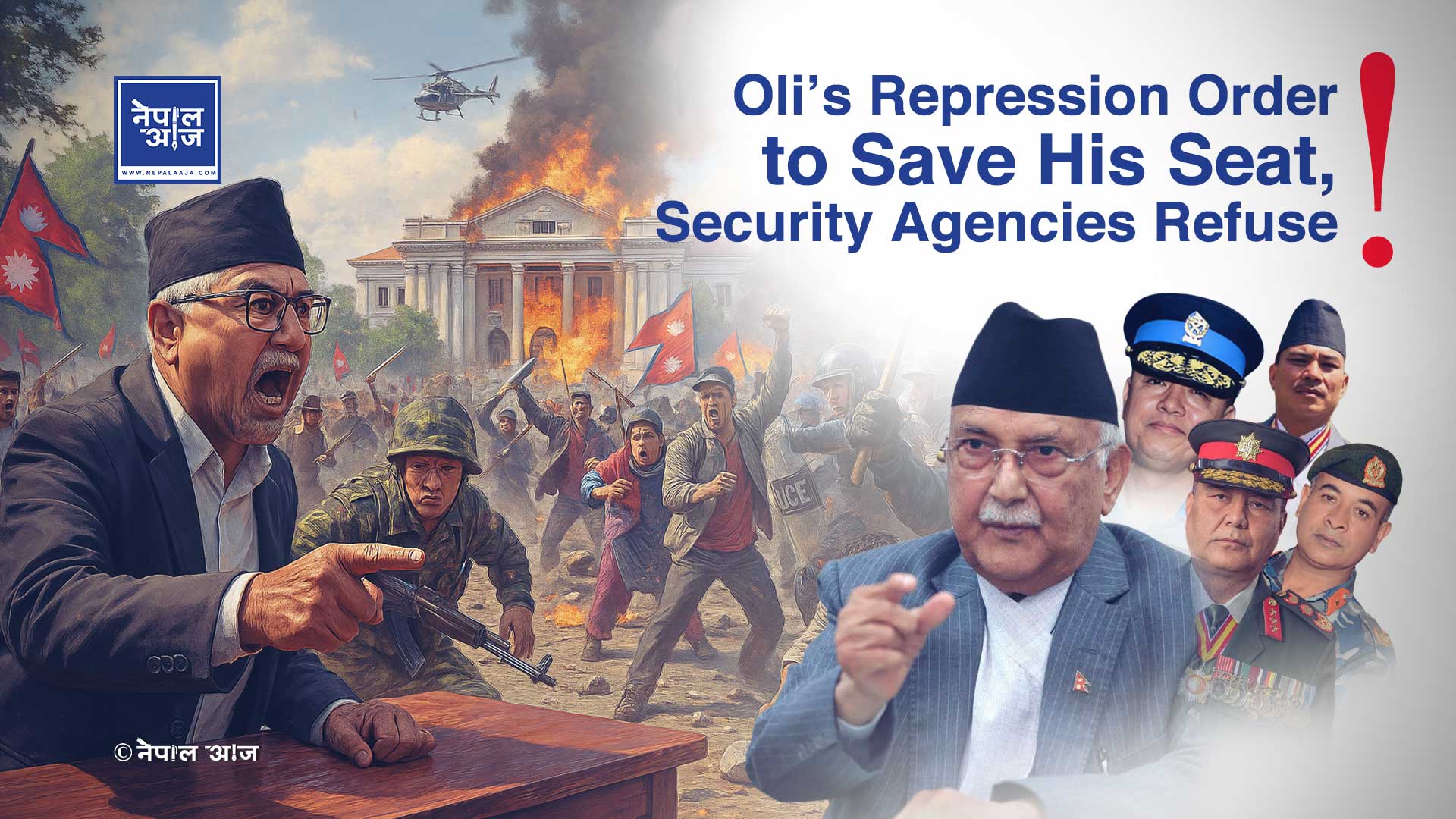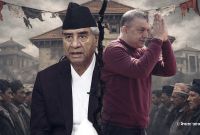Oli Ordered a Bloody Crackdown—Nepal’s Security Chiefs Said No

On the morning of September 8, the streets of Kathmandu were calm. The Generation Z-led protest against corruption and inequality was expected to remain peaceful. Young demonstrators gathered at Maitighar, waving national flags and chanting slogans in what felt like a festival of civic awakening. The morning passed without incident. But by afternoon, the crowd swelled and began marching toward Parliament. Confrontations with police escalated; tear gas, water cannons, and stone-pelting turned the scene violent. By nightfall, 18 people had lost their lives. What began as a peaceful demonstration transformed into a battlefield, plunging the country into a historic political crisis.
That evening, an emergency meeting of the National Security Council was convened at the Prime Minister’s residence in Baluwatar. Prime Minister K.P. Sharma Oli, visibly furious, clashed with Chief of Army Staff Ashokraj Sigdel and ordered a full crackdown: “Suppress the movement at any cost.” Cabinet ministers present—including Finance Minister Bishnu Poudel and Foreign Minister Arzu Rana Deuba—remained silent, unable to intervene as Oli’s rage dominated the room. Sigdel, however, pushed back, warning that indiscriminate force would trigger an uncontrollable explosion rather than restore order.
On the morning of September 9, Nepal Police Inspector General Chandrakuber Khapung, Armed Police Force Chief Raju Aryal, and National Investigation Department’s Chief Investigations Director Hutaraj Thapa jointly briefed the Prime Minister. Their assessment was unanimous: excessive force risked thousands of civilian deaths. Yet Oli refused to relent, repeating his mantra—“Control them at any cost.” The security agencies, invoking responsibility and humanity, defied his unlawful command. That act of refusal prevented what could have become a massacre.
Meanwhile, protests spread across the capital. Crowds stormed the Budhanilkantha residence of former Prime Minister Sher Bahadur Deuba, physically attacking him and Foreign Minister Arzu Rana Deuba. Arson and vandalism targeted ministers’ and leaders’ homes, while frontline security personnel struggled to protect themselves.
Oli, however, clung stubbornly to power. Even as protesters encircled Baluwatar, he stood firm. It was only after learning of the assault on the Deubas that he appeared shaken. Ultimately, faced with overwhelming pressure, Oli was forced to resign. A military helicopter evacuated him and his wife to safety as flames around Baluwatar began to subside.
As the uprising peaked, calm gradually returned. Public pressure, international concern, and the raw force of street resistance converged to reshape Nepal’s political order. An interim government was installed under former Chief Justice Sushila Karki, and Parliament was formally dissolved.
The episode laid bare a stark reality: Oli’s obsession with clinging to power and his disregard for public voice nearly dragged the nation into a sea of blood. In the end, it was the restraint and conscience of Nepal’s security agencies that prevented mass slaughter. That dark September chapter reminded the nation once more—the republic is greater than any throne, and human lives are more precious than any seat of power.




![From Kathmandu to the World: How Excel Students Are Winning Big [Admission Open]](https://nepalaaja.com/img/70194/medium/excel-college-info-eng-nep-2342.jpg)
